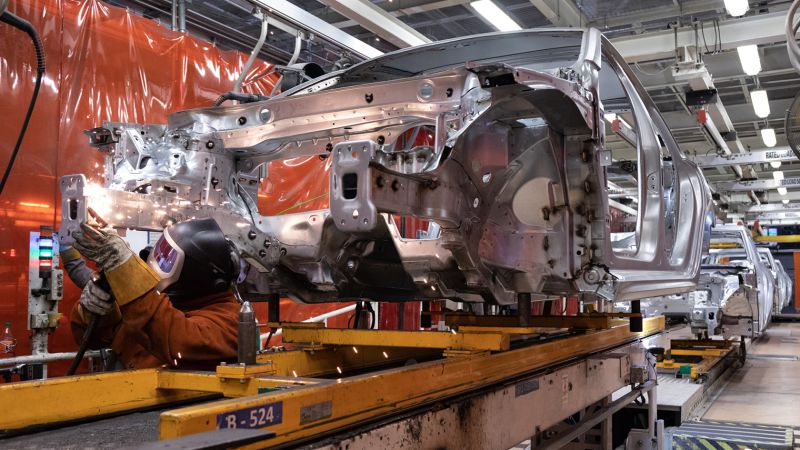The United Auto Workers union achieved a significant victory in a closely watched election to represent 4,300 hourly workers at Volkswagen’s plant in Chattanooga, Tennessee. With 73% of the votes counted in favor of the union, the UAW declared victory, marking a major breakthrough in its efforts to organize workers at non-union auto plants across the country. This win could potentially increase the union’s leverage in future contract negotiations, as there are approximately 150,000 workers at nonunion auto plants in the United States today, similar to the number of unionized workers at American plants of General Motors, Ford, and Stellantis.
The victory at Volkswagen’s plant in Chattanooga could also serve as a significant milestone for unions in Southern states, where union representation among workers is traditionally lower compared to Northern industrial states. With most nonunion auto plants located in the South, the UAW has announced plans to represent workers at nine other foreign automakers with American plants, including BMW, Honda, Hyundai, Mazda, Mercedes, Nissan, Subaru, Toyota, and Volvo. The union has also filed for another election at the Mercedes plant in Alabama and plans to represent workers at American automakers producing electric vehicles such as Tesla, Rivian, and Lucid.
Unlike many employers who typically oppose union membership, Volkswagen remained neutral during the organizing campaign. The union’s efforts had followed a successful six-week strike against the three unionized automakers last fall, resulting in record pay increases for UAW members. These raises led to at least an 11% raise immediately and pay increases totaling more than 30% over the contract’s duration. While nonunion automakers like Volkswagen provided similar raises following the UAW contracts, workers at nonunion plants generally earn less than their unionized counterparts.
Despite strong opposition from a coalition of six Southern Republican governors, the UAW’s victory in the Chattanooga plant represents a significant achievement for the union. The governors, including those from Tennessee, Alabama, Georgia, Mississippi, South Carolina, and Texas, argued that unionization could jeopardize the jobs in their states by potentially putting nonunion jobs at risk. This win at Volkswagen’s plant in Chattanooga marks a significant moment for the UAW, which has faced difficulty representing nonunion auto workers since the closure of Volkswagen’s American plant represented by the UAW in Pennsylvania in 1988.
Overall, the victory at Volkswagen’s Chattanooga plant represents a major milestone for the UAW’s efforts to organize workers at nonunion auto plants nationwide. With plans to represent workers at other foreign automakers and American automakers producing electric vehicles, the UAW’s success in Chattanooga could pave the way for increased union representation in the Southern states and enhance workers’ leverage in future contract negotiations. The development of this story will continue to unfold as the UAW pursues further organizing efforts in the auto industry.













